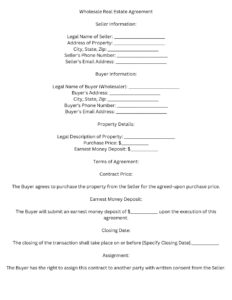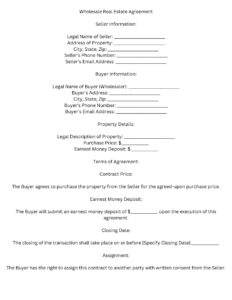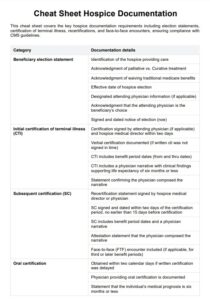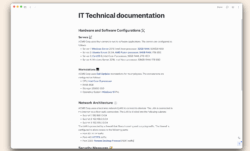Navigating the dynamic world of real estate investing can be incredibly rewarding, especially when you understand the tools that facilitate smooth and profitable transactions. One such powerful tool, often at the heart of quick turnaround deals like wholesaling, is the real estate assignment contract. This document acts as a bridge, allowing an investor to secure a property under contract and then transfer their rights and obligations to another buyer before the original deal closes.
For many aspiring and seasoned investors, having a reliable framework for these agreements is crucial. That’s where a well-crafted real estate assignment contract template comes in handy. It provides a standardized yet flexible foundation, helping you outline the terms and conditions with clarity, protect your interests, and ensure all parties are on the same page, paving the way for successful assignments.

Understanding the Core of a Real Estate Assignment Contract
At its core, a real estate assignment contract is a legal agreement that allows a buyer (the assignor) to transfer their contractual rights and obligations of a property purchase to another buyer (the assignee). This means the original buyer doesn’t actually close on the property; instead, they sell their interest in the purchase contract to someone else, usually for an assignment fee. The original seller, of course, must be aware of and consent to this arrangement, though the specific clauses in the initial purchase agreement often dictate the feasibility and process.
This type of contract is particularly popular in real estate wholesaling, where an investor identifies a distressed property, puts it under contract with the seller, and then quickly finds an end-buyer (the assignee) willing to pay a higher price. The difference between the original contract price and what the assignee pays, minus any fees, becomes the wholesaler’s profit. It’s a method that allows investors to profit from real estate without needing to secure traditional financing or even take ownership of the property themselves, minimizing personal risk and capital outlay.
To ensure a smooth assignment, the contract needs to be comprehensive. It must clearly define the parties involved, the property details, and the financial arrangements. Crucially, it must explicitly state the intention to assign the contract and often includes a clause granting the assignor permission to do so. Without this transparency and specific language, the assignment could be challenged or deemed invalid, jeopardizing the entire deal.
Key Elements Your Template Must Cover
When you’re working with a real estate assignment contract template, pay close attention to the details that make or break the deal. Beyond the basic identification of the property and parties, the template should clearly outline the original purchase price agreed upon with the seller, the assignment fee the assignor will receive, and the earnest money deposit placed by the assignee. Clarity on these financial points is paramount to avoid misunderstandings later on.
Furthermore, important dates such as the effective date of the assignment, the due diligence period for the assignee, and the closing date of the original purchase agreement must be explicitly stated. Any contingencies, such as financing or inspection clauses, should also be transferred to the assignee or addressed in the assignment contract. It’s about transferring all relevant rights and responsibilities, not just the right to buy.
- Property Description: Full legal description and address of the property.
- Purchase Price: The price the assignor agreed to pay the original seller.
- Assignment Fee: The compensation the assignor receives for transferring the contract.
- Earnest Money Deposit: The deposit made by the assignee to secure the assignment.
- Contingencies: Any conditions that must be met for the deal to close.
- Closing Date: The date by which the assignee must close on the property.
- Consent to Assign: A crucial clause indicating the original seller’s permission for the assignment.
Leveraging a Real Estate Assignment Contract Template for Success
Using a well-structured real estate assignment contract template offers numerous advantages that streamline your investment process. Firstly, it provides consistency. Instead of drafting a new contract from scratch for every deal, you have a pre-vetted framework that saves time and reduces the likelihood of overlooking essential clauses. This efficiency allows you to focus more on sourcing deals and less on administrative paperwork, accelerating your business growth.
Beyond efficiency, a robust template acts as a strong protective layer. It ensures that all necessary legal provisions are included, clearly defining the roles, responsibilities, and liabilities of all parties involved. While a template is a general guide, it serves as an excellent starting point that can be customized to fit the specific nuances of each transaction, whether it’s a unique property condition or a particular financial arrangement. Remember that local laws and state-specific requirements can vary significantly, so always adapt your template accordingly.
One of the biggest pitfalls in real estate assignments is ambiguity. A vague or incomplete contract can lead to disputes, delays, or even the collapse of a deal. A comprehensive real estate assignment contract template helps you avoid these issues by prompting you to fill in all critical information, from precise property descriptions to the exact terms of the assignment fee. It’s your safeguard against misunderstandings and potential legal headaches down the road, ensuring a transparent and legally sound agreement.
While a template is an invaluable tool, it’s not a substitute for professional legal advice. Always consider having an attorney review your completed contract, especially for your first few deals or if the transaction presents unusual complexities. A legal professional can ensure your contract complies with all current local, state, and federal regulations, providing you with peace of mind and further strengthening the enforceability of your agreement. Their expertise can help you navigate any intricate legal landscapes and protect your investment.
- Customize Carefully: Adapt the template to each unique deal and local regulations.
- Seek Legal Review: Consult an attorney to ensure compliance and strengthen enforceability.
- Clarity is Key: Ensure all terms, especially financial ones, are unambiguous.
- Educate Yourself: Understand the contract’s clauses thoroughly before signing or presenting.
- Keep Records: Maintain meticulous records of all communications and signed documents.
In the fast-paced world of real estate investing, having the right documentation is not just a convenience; it’s a necessity. A properly executed assignment contract empowers investors to capitalize on opportunities swiftly and efficiently, bridging the gap between a seller looking to divest and a buyer ready to acquire, all without ever taking ownership themselves. It’s a testament to strategic thinking and smart legal frameworks.
By understanding its components and leveraging a comprehensive template as a starting point, you can navigate these transactions with confidence. This fundamental document is more than just paperwork; it’s a strategic asset that supports your investment goals, safeguards your interests, and ultimately contributes to your success in the competitive real estate market. Equip yourself with this knowledge, and you’ll be well on your way to mastering the art of the assignment.



